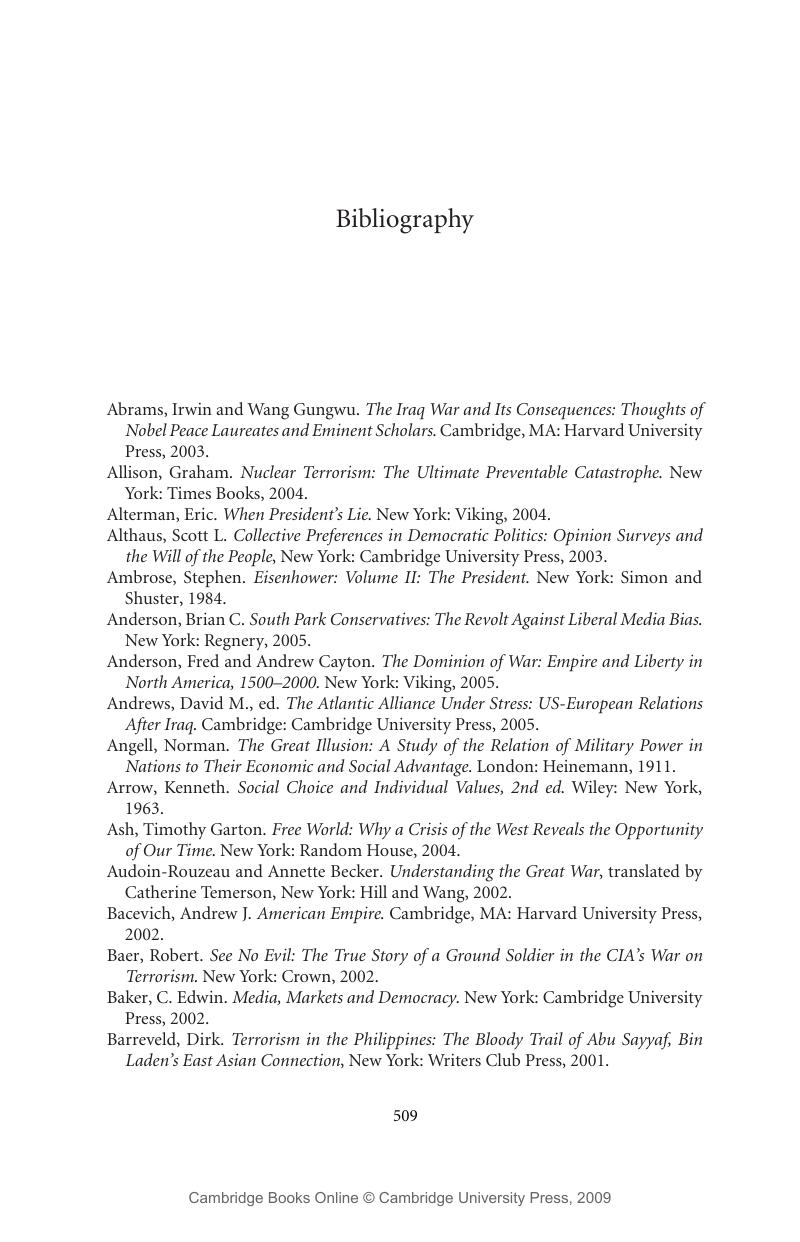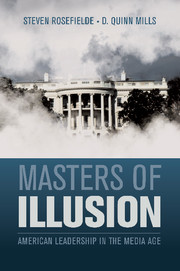Book contents
- Frontmatter
- Contents
- List of Tables and Figures
- Preface
- Acronyms
- Executive Summary
- Acknowledgments
- PART I NATIONAL SECURITY IN THE NEW AGE
- PART II AMERICAN PUBLIC CULTURE AND THE WORLD
- PART III AMERICAN PUBLIC CULTURE AND OURSELVES
- PART IV THE RECONFIGURATION OF NATIONAL WEALTH AND POWER
- PART V VORTEXES OF DANGER
- PART VI THE AMERICAN RESPONSE
- PART VII LEADING TOWARD PEACE
- PART VIII AMERICAN PRESIDENTIAL LEADERSHIP
- Notes
- Glossary
- Bibliography
- Index
- References
Bibliography
Published online by Cambridge University Press: 31 July 2009
- Frontmatter
- Contents
- List of Tables and Figures
- Preface
- Acronyms
- Executive Summary
- Acknowledgments
- PART I NATIONAL SECURITY IN THE NEW AGE
- PART II AMERICAN PUBLIC CULTURE AND THE WORLD
- PART III AMERICAN PUBLIC CULTURE AND OURSELVES
- PART IV THE RECONFIGURATION OF NATIONAL WEALTH AND POWER
- PART V VORTEXES OF DANGER
- PART VI THE AMERICAN RESPONSE
- PART VII LEADING TOWARD PEACE
- PART VIII AMERICAN PRESIDENTIAL LEADERSHIP
- Notes
- Glossary
- Bibliography
- Index
- References
Summary

- Type
- Chapter
- Information
- Masters of IllusionAmerican Leadership in the Media Age, pp. 509 - 524Publisher: Cambridge University PressPrint publication year: 2006

